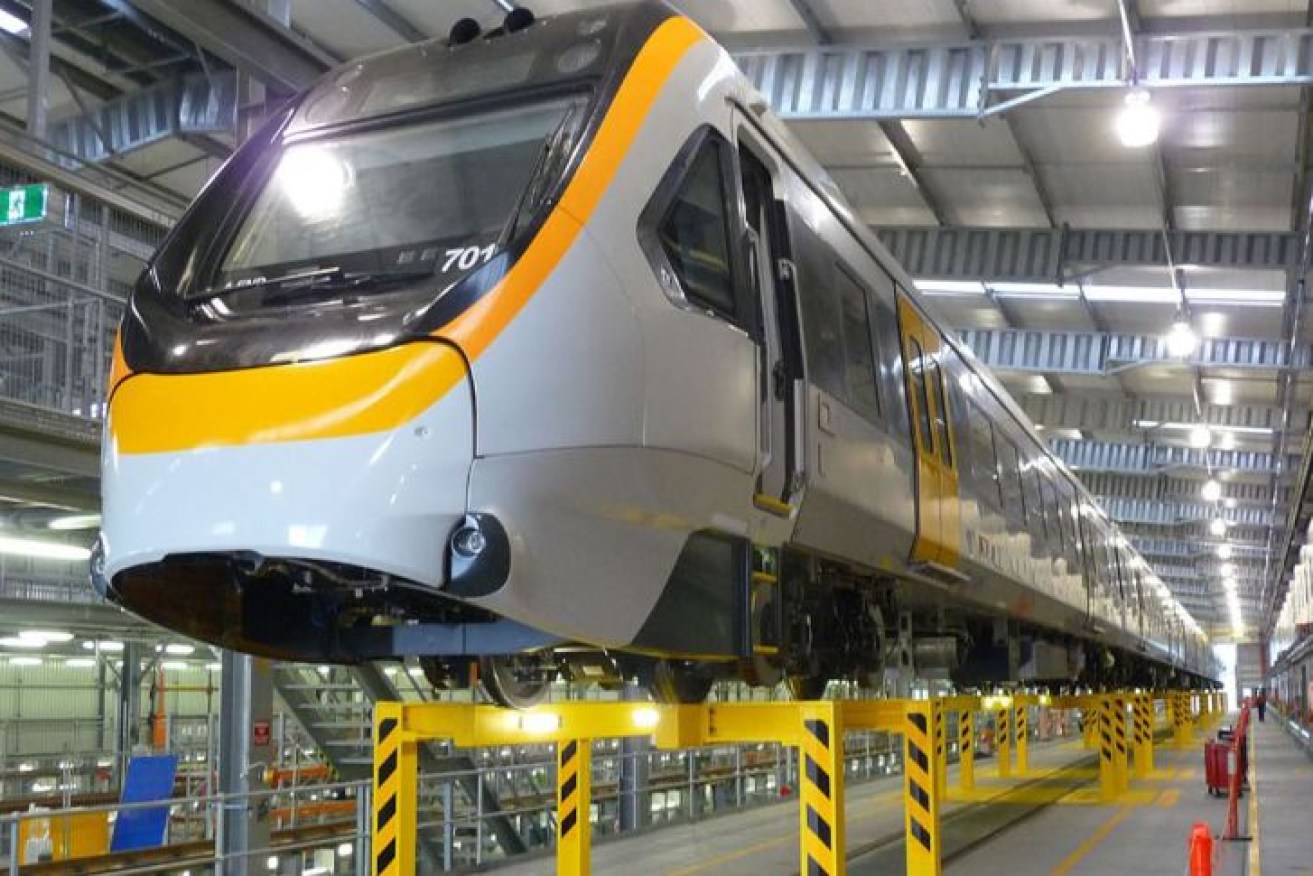Train gang: Govt to probe Queensland Rail links to slave labour
Queensland’s Transport Minister Mark Bailey has directed his department to ‘urgently review’ whether the state’s New Generation Rollingstock (NGR) trains contain parts sourced from slave labour factories in China.

The Department of Transport and Main Roads is investigating KTK Australia's role in providing parts for Queensland's New Generation Rollingstock (NGR) trains. (Photo: Supplied, Department of Transport and Main Roads)
Earlier this week, the US Government’s announced it had blacklisted KTK and 19 other companies from future contracts, after finding they were implicated in human rights abuses against Muslim Uyghurs in China.
The Queensland Government has an ongoing relationship with KTK, and Bailey said he had now directed his department to determine the extent of the existing contracts.
“My department is urgently investigating KTK Australia’s role in the New Generation Rollingstock (NGR) project that was manufactured overseas,” Bailey said.
“KTK supplied parts for the NGR trains that were built overseas several years ago, and we’re aware KTK has also previously been contracted as a supplier of parts and components for other rail projects in Sydney and Melbourne.”
Bailey said the Government condemned human rights abuses of any kind, and expected QTECTIC, as the maintainer of the NGR trains, to arrange alternate suppliers as soon as possible.
Queensland’s NGR trains are currently not operational and are being modified at a cost of $335 million to become compliant with the federal Disability Discrimination Act 1992.
“The contract to design and construct the fleet of 75 new passenger trains overseas was signed by the former Newman LNP government,” Bailey said.
“The contract to manage and maintain the NGR fleet under a public-private partnership structure was also struck under the Newman LNP government.
“Under that structure, the QTECTIC consortium is responsible for the ongoing management and maintenance of the NGR fleet.”
Federal Government point fingers over failing to pick up allegations
In a statement, a spokesperson for the Department of Home Affairs said procurements were a matter for State and Territory Governments.
“The Australian Government encourages state and territory governments to take action to respond to modern slavery risks in their supply chains,” the statement said.
“The Modern Slavery Act 2018 requires the Australian Government and Australian businesses to publicly account for how they respond to modern slavery risks in global operations and supply chains.”
The spokesperson did not answer whether the Commonwealth had supplied any state government with information about KTK.
Bailey confirmed his office had not had any contact or correspondence from the Federal Government or any Commonwealth agencies about KTK.
‘Workers reminded not to misbehave’
Fan Jiang, managing director of KTK Australia, told the ABC the company rejected the allegations it had used forced labour at any of its facilities in China.
“In announcing that 11 Chinese companies had been added to its sanctions list, the United States Department of Commerce specifically states those companies are ‘implicated’ in wrongdoing without providing any proof,” Mr Jiang said.
He also said KTG Group did not have any investments in the United States.
“KTK Group is a transparent company and welcome any international customers to inspect our facilities and to audit our labour practices,” Mr Jiang said.
Earlier this year the Australian Strategic Policy Institute published a report that named KTK Group as a company that had used forced labour of Uyghurs in at least one of its factories.
The report’s author Vicky Xiuzhong Xu said ASPI had verified the claims by reading hundreds of government documents, Chinese state media reports, and via an investigation with the Washington Post.
“We found that typically these workers live under very close surveillance, they have a surveillance app on their phone, and they are being watched by the police officers at the factories,” Xu said.
“After work hours they take on mandatory Mandarin lessons and political indoctrination sessions, and their family members get regular visits from party members to remind them not to misbehave.”
Ms Xu said she believed the way both the Commonwealth and state governments responded to this issue was a test of Australia’s commitment to human rights and its modern slavery legislation.
“An investigation into KTG Group and their contracts with Australian state governments is overdue,” she said.
“But I think given the response from the United States we are looking to see and test if Australia’s modern slavery act will be able to protect us from slave labour, and do what is says which is to safeguard our values on human rights.”
– ABC / Exclusive by state political reporter Stephanie Zillman












